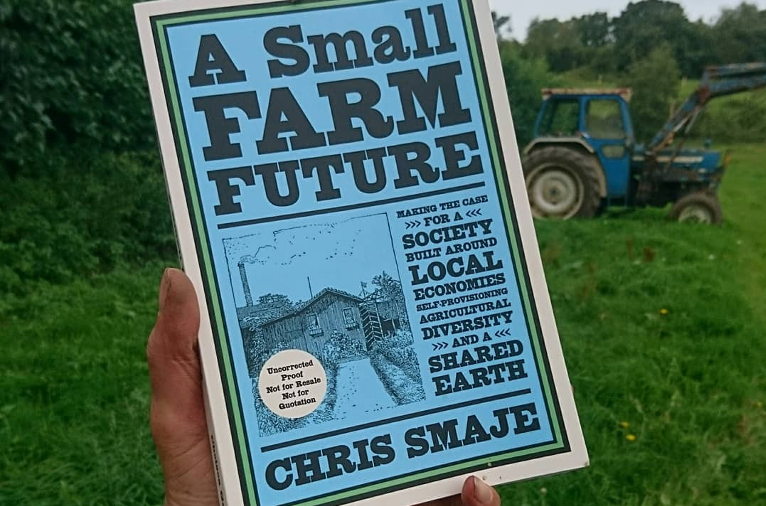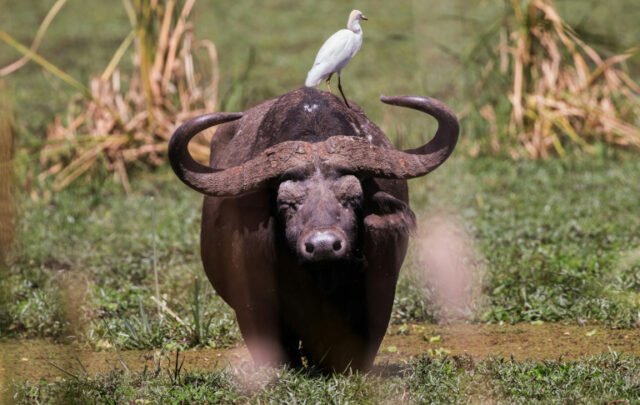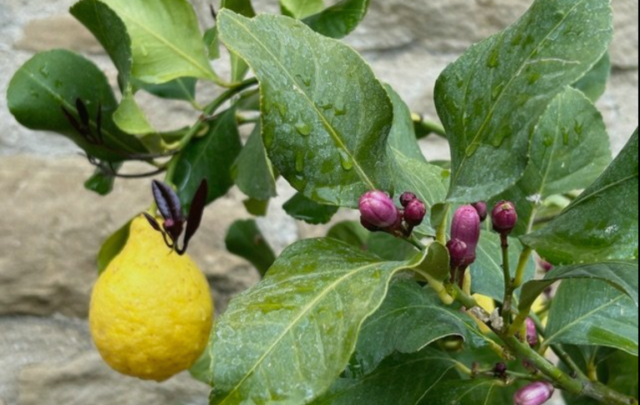This excerpt is from Chris Smaje’s book A Small Farm Future: Making the Case for a Society Built Around Local Economies, Self-Provisioning, Agricultural Diversity, and a Shared Earth (Chelsea Green Publishing, October 2020) and is reprinted with permission from the publisher.
Culture Crisis
This is the crisis of modernist culture – the ability to create ourselves as individuals and protect ourselves from the vicissitudes of the non-symbolic world, set against the ability to alienate ourselves as individuals and offload the consequences of our self-creation onto other people (including future people) and the non-symbolic world. In view of the other crises we face, the only convincing way I can see of transcending this crisis is to start making ourselves as individuals in less materialised ways that are more engaged with the Creation, the non-symbolic world, around us. The small farm future I describe is the most convincing form I can see that transcendence taking.
One reason the prospect of a small farm future sits awkwardly with modern culture is that it flouts a sense of progress. Small-scale agriculture was what people did in the past, but we’ve now progressed beyond it. It’s hard to shake off this view because when we think about history through the lens of modernity we tend to use spatial metaphors with binary moral overtones. We move forwards, upwards or onwards, we lift people up out of poverty, we support progressive ideas and we don’t look back – but when we do, we see backward societies where a lot of people farmed.
In one sense, such objections are easily dealt with. A small farm future needn’t be the same as a small farm past. We don’t have to go back. But that’s not quite good enough, because the culture of modernity involves a sense of radical rupture with the past, and a wholly new destiny for humanity – a destiny that’s regarded as better than everything that went before it, largely because people quit farming, left the countryside and got busy with their modernist life projects. So in order to make a case for a small farm future as modernity’s follow-up act, it’s necessary to probe a little at this idea of modernity as a historical upgrade.
Sociologist Göran Therborn defines being modern as being ‘unbound by tradition, by the wisdom of our fathers, by the skills of our masters, by any ancient authority. To be modern is a cultural time orientation to the present and toward the future’ (emphasis in the original).1 It’s a nice definition, one that I’m happy to identify with as a ‘modern’ myself. But note that being unbound by the past isn’t the same as defying, ridiculing or measuring oneself against it. And yet this looms large in many writings that celebrate the virtues of the modern. For example, Rutger Bregman tells us that ‘in the past, everything was worse. For roughly 99% of the world’s history, 99% of humanity was poor, hungry, dirty, afraid, stupid, sick and ugly,’ while Anthony Warner makes the bold and conveniently untestable assertion that ‘every society that has ever existed would eagerly swap their lives with someone living in the developed world today’. Other writers I mentioned earlier – Steven Pinker and the authors of the Ecomodernist Manifesto among them – also weigh in on the theme that when all is said and counted, the evidence proves conclusively that modern lives are just better than premodern ones.2
You’d have thought a confident culture that was truly modern in the sense described by Therborn could let the dead lie, rather than indulging in shrill pronouncements of its superiority over them. In this respect, chest-thumping pronouncements about the virtues of our times seem self- undermining. Like the class bully whose tough-guy antics betray an inner sense of weakness, the anxiety leaks from them that for all our achievements we moderns are not the betters of our forebears, are not the heroes of our story that we’d like to be, and that our achievements in fact have put our civilisation under existential threat. It’s not as if the only positive social changes that could possibly have happened to premodern societies were the ones that actually did happen thanks to modernity and capitalism. For my part, I see no virtue in trying to measure our superiority over past epochs, so the main point of interest in the flourishing sub-genre of progress-literature is that it obstructs the case for a small farm future as a modern response to our modern problems by creating bad associations with a deprecated past.
But if progress-literature does have a deeper idea worth wrestling with, perhaps it’s the desire to transcend external constraint or limits. In an influential recent book Nick Srnicek and Alex Williams criticise what they call folk politics – the domain of the ‘small-scale, the authentic, the traditional and the natural’, its ‘guiding intuition that immediacy is always better and often more authentic, with the corollary being a deep suspicion of abstraction and mediation’. For them, by contrast, there is ‘no authentic human essence to be realised, no harmonious unity to be returned to, no unalienated humanity obscured by false mediations, no organic wholeness to be achieved’. Seeking a left-wing, post-capitalist alternative to the present neoliberal moment in global politics, they argue that ‘given neoliberalism’s inherently expansionary nature, only an alternative expansionary and inclusive universal of some kind will be able to combat and supersede capitalism on a global scale . . . . Whereas folk-political approaches lack an enticing vision of the future’. In this way, they embrace the present and the future:
The newest wave of automation is creating the possibility for huge swathes of boring and demeaning work to be permanently eliminated. Clean energy technologies make possible virtually limitless and environmentally sustainable forms of power production. And new medical technologies not only enable a longer, healthier life, but also make possible new experiments with gender and sexual identity. Many of the classic demands of the left – for less work, for an end to scarcity, for economic democracy, for the production of socially useful goods, and for the liberation of humanity – are materially more achievable than at any other point in history.3
An obvious problem here is that, as we saw earlier, the idea that humanity is entering a future of limitless clean energy and material abundance isn’t well founded. So it’s possible that people may have to embrace the old human essences of being biological, labouring, suffering creatures after all, which isn’t an unenticing vision for everyone. A less obvious problem is that Srnicek and Williams are themselves making a claim for a kind of authentic human essence – an expansive, universalist, self-overcoming one. Doubtless this appeals to some people – there are aspects of it that appeal to me – but it’s not the only way of construing what it means to be human.
The fact that there isn’t necessarily any authentic human essence behind small-scale, immediate or traditionally oriented work doesn’t make it intrinsically less worthy than the transcendence sought by Srnicek and Williams. For many people, there does seem to be something quite intrinsically satisfying about working outdoors on practical problems thrown up by a material world of things and creatures that don’t dance to our tune. But there’s a lot of cultural processing behind every ‘enticing vision’, whether it’s practical engagement with nature or Srnicek and Williams’s ‘world without work’.
The other feature of small-scale farming that people often single out as problematic is that it can involve hard physical work. This is strange inasmuch as a capacity for hard, disciplined work is a characteristic feature of modernity, and the supposed indolence of non-modern peoples has frequently prompted criticism from their modernist observers. It’s not even as if we denigrate hard physical work. Consider our celebration of mountaineers, explorers, sportspeople, and gym members.
The difference, I think, is that these are people working hard physically in ways that make them stand out as exceptional individuals, or at least that dramatise an individual life project – thoroughly modernist pursuits. Small-scale farmers, on the other hand, merely work physically in order to create their daily livelihoods. I’ve noticed this even at alternative farming conferences, where much emphasis is placed on being innovative – in other words, celebrating one’s individual exceptionalism. Of course, there’s a lot to be said for innovation, so long as it’s clear why we’re innovating, who’s benefiting and what the wider consequences are. But we seem loath to accept that working moderately hard to create a modest local livelihood using standard, well-established farming methods and spending the rest of our time creating ourselves through simple low-carbon activities like walking in the woods, visiting friends, reading a book, playing the guitar or making love constitutes a worthwhile form of modern life.
I’d argue that, ironically, we’ll be making true progress – we’ll be truly modern – when we let go of older modernist traditions that insist our lives must get more moneyed, automated, commodified, materialised, medi- ated, individually crafted and so on. It’s not that there’s nothing worth celebrating or defending in the traditions of modernity, but doing so requires a nuanced and creative response to changing times that acknowledges modernity’s downsides. The heavy-handed nostalgia for a perfected vision of past modern achievements as the lodestar of human progress offered by figures like Steven Pinker is stuck in the past. It’s time to move forwards to a small farm future.
References:
- Therborn 2017, 24.
- Asafu-Adjaye et al. 2015; Bregman 2017, 1; Pinker 2018; Rosling 2018; Warner 2018, 279.
- Srnicek and Williams 2015, 10, 82, 70, 1–2.






